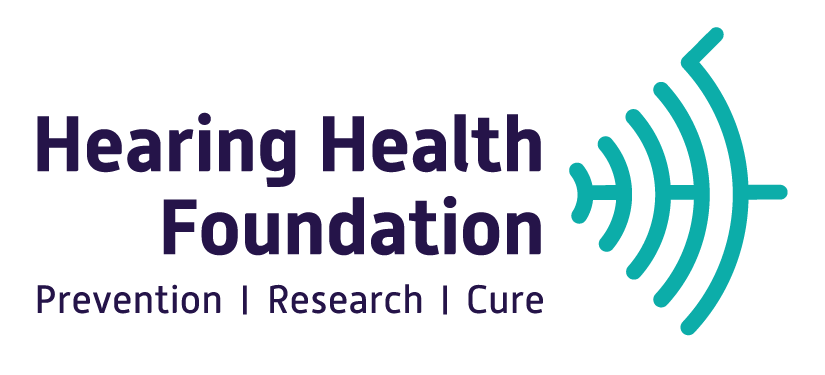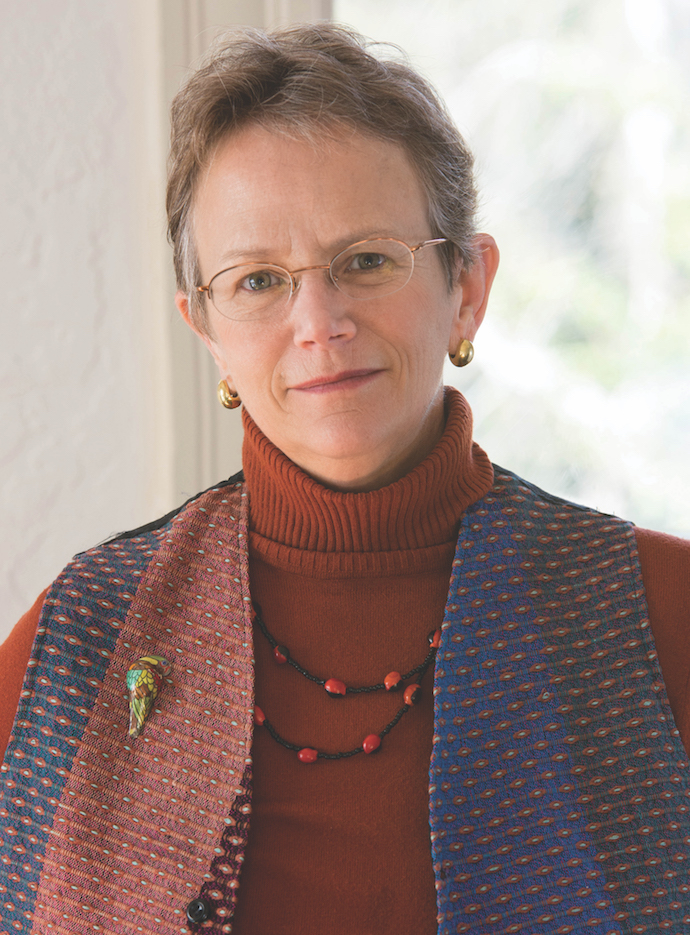Recent advances in remote mic technology have now expanded their functionality. Some can now also pick up sound from a hearing loop via their built-in telecoils and stream it via Bluetooth to hearing aids.
How to Hear Better in the Classroom
As classrooms are nearly always inherently noisy, it’s a challenge for children with hearing loss as well as typical hearing children to always be able to fully hear and understand what’s being said in the classroom.
‘Hear’ I Am
I wrote a book, “Hear I Am,” several years ago about helping people with hearing loss and other disabilities to be able to graduate from college and work at a job with the proper accommodations in place. In the book I model through examples about how I persevered in college and then in the workplace.
Making Friends and Influencing People
By Kathi Mestayer
Lorrie Moore, the author of “Who Will Run the Frog Hospital?” was in town in Williamsburg, Virginia, giving a reading at Tucker Hall at the College of William and Mary. My friend Susan had invited me, and I actually remembered the author’s name and knew that book was somewhere on my shelf, so I said yes.
My husband Mac had read the book, and was sure I would like it. I managed to find it on our jumbled bookshelves, which are kind of in alphabetical order (for fiction, at least). And it was short, only 147 pages! Before long, I realized that I had already read it, too. Not because I remembered anything, mind you, but because my marks and scars were present pencil lines in the margins, and a few dog-eared pages. Mac never marks up a book, or dog-ears the pages, and it drives him crazy when I do. So, it’s usually easy to tell whether I’ve read a book. In this case, I was probably walking that fine line with my fine lines.
I got 33 pages into the book, and it was lively stuff. One passage I had circled (in ink!) was, “She inhaled and held the smoke deep inside, like the worst secret in the world, and then let it burst from her in a cry.” I love revisiting a book, like a stone skipping over water, hitting the high spots thanks to my notes.
So when the day of the reading arrived, I went to listen to Lorrie Moore read her favorite passages in her own voice.
Wishful Thinking
When I got to the lecture hall, I sat by Susan, who was fortunately in the second row, near the aisle. Someone introduced Lorrie Moore. I couldn’t hear most of that, but it didn’t really matter. Then she got up to read, holding a big, thick book (her latest), with a microphone clipped to her lapel.
I couldn’t hear a word of it. It seemed as though she was muttering softly, but I’m not a good judge of that. I leaned over and whispered to Susan that I was having trouble hearing and was going to sit in the front row. Well, Susan outed me immediately, and informed the guy who had introduced Lorrie that she wasn’t audible. While I tried to surreptitiously move to the very center of the front row, he asked Lorrie to hold the lapel mic in her hand, so it could be closer to her mouth.
She did that for a few minutes, but it got awkward when she needed to hold the book, too. And when she held the mic in her hand, it was so close to her mouth that her speech was distorted, with the P’s and T’s sounding like balloons popping. Tiny balloons, but enough to muddy her speech. For me.
So, at the suggestion of a young man on my right, she put the mic back on her lapel, but closer to her face. She asked, “Can everyone hear me now?” I didn’t turn around to see the response behind me, but it was clear that she got some no’s because she started playing around with the mic and saying, “How about now?” And, “Now?”
That was when one of the professors leapt over the front two rows, got on the stage, took the big, regular-mic holder (which was empty), bent it around to the front of the lectern, and clipped the tiny lapel mic to it. Okay. It was closer to her mouth, and she could use her hands for other things.
Let the reading begin. Again.
This time, she read for about 20 minutes, and I still couldn’t hear clearly enough to know what she was mumbling into the mic, with the P’s and T’s popping again due to its proximity to her mouth. I sat there patiently, not wanting to be disruptive again, and thought about other things, in between the audience’s intermittent chuckling. To my credit, I did not get my phone out to check my email.
After she was done, and the Q&A period started, I slunk out of the room, as quietly as possible. Others were doing the same, so I felt a little less rude. The next day, I got an apologetic email from Susan.
Not Just Me
A couple of days later, I was in a gift shop downtown, and a young woman behind the counter asked if I had been at the reading the other night in Tucker Hall. I said yes. Turns out, she was sitting right behind me. When I mentioned that I had a really hard time hearing in that space, she replied, “Oh, I HATE that room! It’s the worst one on campus! I can never hear in there.”
The good news is that, the next time Susan invited me to a reading, she made a point of saying they had gotten the good mic back up and running. And, in fairness, making an entire campus of classrooms and other spaces hearing-friendly will take time, money… and attention. In fact, I’ve already managed to get an FM system installed in two auditoriums in another building on campus. So, slowly, the system is getting better, one complaint at a time.
I think of that passage I ink-circled, about inhaling smoke like a big secret and letting it burst forth. Advocating to hear can put you in the spotlight, uncomfortably, especially in a group situation, but we should let our needs burst forth to help others who are no doubt in the same situation.
Kathi Mestayer is a staff writer for Hearing Health magazine.
The Best Lesson Yet
By Layla Rudy
I was diagnosed with bilateral sensorineural hearing loss at age 3, after a series of unsuccessful doctor visits. Two years later, I was going to the audiologist to get my hearing aids for the first time. I remember being frightened by a picture in the waiting room of the shiny tube that comes out of the ear molds attached to hearing aids. My little brother was crying in the stroller as we left the doctor’s office for brunch.
Layla, age 5, with one of her brothers, James
I went to speech therapy for the next four or five years; during school, along with two other kids, I was pulled out of class a few times a week. I remember thinking that I didn’t belong there, that I was “normal,” and that everything was fine with me. But the teachers and administration didn’t know what to do with me—they thought something was wrong with me, and they just threw me in the same boat as the kids with speech problems or ADHD.
I was the only kid in my elementary school with hearing loss. While it was great that my mom wanted to mainstream me, looking back, it was clear the school didn’t know how to handle a student like me.
The problem was ignorance more than a lack of resources—although that was an issue, as well. My teachers plopped me in a desk—not always in the front of the room—and, not understanding how important the FM system was for me to hear in their classrooms, didn’t wear it. I thought the teachers didn’t care about me, but it turns out they just never learned how to deal with students with hearing loss. I was too embarrassed to say anything, so the FM systems often went completely unused. For the same reasons, I was never assigned a note-taker. I was the outlier in a room full of typical children.
Identical issues continued in middle school and high school. I developed anxiety from a young age and, by adolescence, the effects were more severe. In retrospect, a lot of my anxiety stemmed from my worries that my peers were talking about me, or that I was not fully aware of my surroundings. To put it simply, I was anxious because I couldn’t hear.
My mom had always told me that college would be easier—I could get a note-taker and finally have the resources I never had. When I applied to Brooklyn College, I found the Center for Student Disabilities Services on their website. I was thrilled to find that they had a section devoted to hearing loss and deafness. Better yet, professors were given a guide to understand how each disability was to be handled and treated.
So, when I arrived at their offices, I filled out forms and submitted my hearing test results. They had told me to come back in a few days, at which point I would have everything I had wished for in elementary school.
Ironically, I never bothered to go back to their offices, and I never bothered with their accommodations.
I have spent my whole life going home and teaching myself what the teacher had taught us in class (that I could not hear)—taking my own meticulous notes that my classmates begged to borrow. I have always wanted a note-taker, an FM system that gets consistently used, and empathetic teachers. Now that I finally have access to all of this, I don’t need it.
I realize I’ve subconsciously trained myself not to rely on anyone else; it’s not that I don’t want to ask for help, or that I’m too embarrassed. I know that if I need it, I can ask, unlike when I was in elementary school. But my hearing loss, my disability, has enabled me to rely on myself, to be aware of my surroundings, to better communicate with others.
And to me, self-reliance is the best lesson yet.
New Jersey native Layla Rudy is a freshman at Brooklyn College planning on studying biology to eventually conduct auditory research. She is also a participant in HHF’s “Faces of Hearing Loss” campaign.
Receive updates on life-changing hearing research and resources by subscribing to HHF's free quarterly magazine and e-newsletter.







